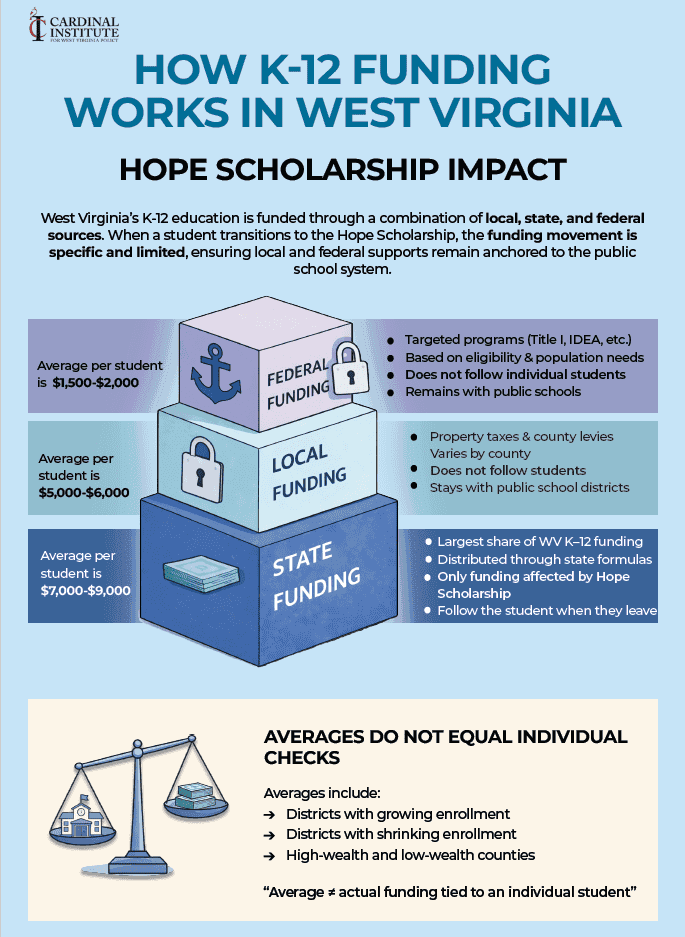
Wild & Wasteful Spending in West Virginia
Cardinal Team
Wasteful Spending: A Trade Secret
In 2017, an investigation was launched into the West Virginia Supreme Court for overzealous spending. 2009 sparked a renovation initiative for the Court with a price tag of roughly $876,000. But, by 2017, the expenses ballooned to $3.7 billion. Most notable of the excessive expenditures were the $32,000 sectional sofa and $1,700 in throw pillows found in former Chief Justice Allen Loughry’s chamber.
However, this comes as no surprise. Wasteful spending is a trade secret for West Virginia’s state government. From 2000 to 2018, West Virginia saw a 160% increase in spending — four times higher than population inflation. It’s hard to fathom why West Virginia continues to increase spending with a declining population.
Eliminating the personal income tax (PIT) has become a legislative priority for the next two years. The goal is toreduce the tax burden on families and incentivize growth in the Mountain State. Yet, current conversations to eliminate the PIT have missed the point of enacting reform almost entirely.
Despite ideological differences about whether a PIT should be kept or reduced, there is little denying how volatile the tax can be — especially in the wake of COVID-19. Taxable income falls through economic recessions, leading to revenue shortfalls, and taxation on capital gains provides a dramatic fluctuation based on market conditions.
West Virginia’s current budget is financed primarily by the PIT, accounting for approximately 45% of state income each year. Compared to the nation, we are among the top 20 states that rely on PIT most.
But despite the decline of residents, West Virginia finds more ways to spend what we don’t have (and are losing). This is where the fundamental problem with our finances lies.
At the 2021 State of the State Address, the Governor’s proposal suggested increasing other tax forms to eliminate the PIT. But let me be clear, this is bad policy — especially for West Virginia.
It Is Time to Eliminate the PIT, But How?
To help Mountaineers, we cannot pair the elimination of one tax with an increase of another. Instead, West Virginia should focus on essential concepts of restraints in spending, growing revenue, and tax triggers. By increasing or creating additional sales taxation, companies previously not affected by the tax begin to see problems in their business structure, halting economic growth.
Tax triggers are a set of policy guidelines to encourage the reduction of rates according to revenue growth. Such catalysts help alleviate future economic outlooks’ uncertainty while working to change the tax code actively. North Carolina is the most notable state to have implemented triggers. In 2013, their comprehensive tax policy plan used triggers to reduce rates upon revenue availability. With this mechanism, tax reform is implemented at the rate of individual state growth and assures tax reform aims are met.
However, tax reform must target the underlying symptoms of the problem. In West Virginia, it’s excessive spending.
North Carolina‘s budget process excels; they welcome one of the nation’s strictest plans. The state enforces strict transparency of the balanced budget and requires the Governor to continuously “survey the collection of the revenue,” asking him to make the spending changes necessary to avoid debts.
West Virginia should follow these same principles. The state should adhere to strict budgeting and ensure taxpayer dollars are spent frugally.
We spend more than half of the states in the country on per pupil education while simultaneously welcoming the second worst results in educational achievement. Yet, for years, we’ve increased education spending. West Virginia must learn that money is not the problem — or the answer.
Excessive spending has led the state to rely on systems rather than people. Failure to reconcile this will lead to continued economic malaise. State government should routinely review how wisely it spends taxpayer money and if cuts can be made.
Jessica Dobrinsky is the Policy Development Associate for the Cardinal Institute for West Virginia Policy.







